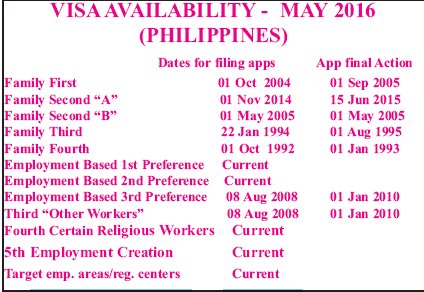
By: Robert Gard
 USCIS Issues New Memo on “Porting” (Changing Employment) While Waiting for Adjudication of Pending Employment-Based I-485 Application for Permanent Resident Status
USCIS Issues New Memo on “Porting” (Changing Employment) While Waiting for Adjudication of Pending Employment-Based I-485 Application for Permanent Resident Status
On March 18, 2016 USCIS issued new guidance regarding when a foreign national “green card” applicant can “port” (change employment to a different position or employer) his/her I-485 while the I-485 is pending (awaiting adjudication) at USCIS offices . Under Section 204 (j) of the American Competitiveness in the Twenty-First Century Act (“AC21”) a foreign national can change his/her employer or job during the green card process once the employment sponsorship based I-485 application for permanent resident status has been pending at USCIS offices for 180 days or more. When changing positions, the green card applicant and their new employer, must file a letter with USCIS confirming the new employer is taking over the green card sponsorship case, agrees to pay the prevailing wage for the position, and that the new position is the same or similar to the position described in the green card application.
The USCIS will consider the “totality of the circumstances” when determining if the green card job and the new job are the same or similar. Specifically, the March 18 memo describes how Immigration Officers can review the occupation codes assigned to both jobs by the U.S. Department of Labor when determining if the two jobs are the same or similar. Evidence that the positions are the same or similar can include:
· The job duties of both positions;
· The skills, expertise, education, training, licenses or certifications specifically required to perform each job;
· The wages offered for each job; and
· Any other material and credible evidence relevant to the determination.
Green card applicants can also port their I-485s when, in their new position, they are primarily responsible for managing the same or similar function of their original job. For example, if a PT is promoted to Senior PT and supervises other PTs and PTAs. It is also acceptable for the applicant to manage workers in a different occupation if the change in position is a normal career progression. For instance, if an OT is promoted to Rehab Manager, the OT may be supervising other OTs as well as OTAs, PTs, PTAs, SLPs, and others. This March 18, 2016 policy guidance memo is a precursor to the expected release of final regulations soon expected to be issued by USCIS titled “Retention of EB-1, EB-2 and EB-3 Immigrant Workers and Program Improvements Affecting High-Skilled Nonimmigrant Workers”. USCIS issued a proposed regulation on these matters on December 31, 2015, and has been accepting comments from the public on those proposed regulations since that date, so the final or interim final regulations could be issued at any time.
Proposed “porting” regulation (which was the subject of the March 18, 2016 “guidance” memo) 8 CFR §245.25(a)(ii) states (ii) An explanation from the new employer establishing that the new employment offer and the employment offer under the approved petition are in the same or similar occupational classification, which may include material and credible information provided by another Federal government agency, such as information from the Standard Occupational Classification (SOC) system, or similar or successor system, administered by the Department of Labor; This language “which may include material and credible information provided by another Federal government agency, such as information from the Standard Occupational Classification (SOC) system, or similar or successor system, administered by the Department of Labor” is unduly restrictive and makes the current system more confusing and is more restrictive than what was intended by Congress. USCIS has stated that the goal of the regulation is to make it easier for people to change employers, but the stated regulation will have the opposite effect. The language quoted above should be eliminated. Furthermore, USCIS should establish a system for allowing people to receive a determination of portability before they change positions. Once an individual changes employers, they are taking an enormous risk if USCIS disagrees that the new position is the same or similar. Consequently, they may choose not to move and to remain in a position that may hinder their career development or is otherwise not ideal.
U.S. Senators Dick Durbin (D –IL) and Charles Grassley (R-Iowa) are Once Again Trying to Advance Their Legislation to “Reform” (Destroy) the H-1B and L-1 Nonimmigrant Visa Programs
In November of 2015, Senators Dick Durbin and Charles Grassley once again introduced legislation to “reform” (destroy) the H- 1B and L-1 nonimmigrant visa programs, and they are again pushing for a vote on their legislation, hoping that the Senate will be eager to advance a “bipartisan” bill in an election year where the voting public appears angered by political deadlock. The proposed H-1B and L-1 Visa Reform Act threatens to disrupt the United States’ employment- based immigration system. The implications of the proposed bill go far beyond a simple change from a lottery system to a tier-based approach and would inherently change the landscape of hiring foreign workers in the United States. The allegations of fraud and abuse in the H-1B and L-1 programs have been repeated and rebutted over the years, but Senators Durbin and Grassley are determined to gut the programs to provide protections from abuses that may very well be imaginary. This is a short explanation of their proposed legislation:
Why Do the Lawmakers Want to Limit H-1B Holders?
The senators who introduced the bill say they want to make qualified American workers the “first priority for employers.” The bill requires firms to make efforts to recruit U.S. citizens first, ahead of H-1B visa holders.
How Do They Want to Do It?
Any company with more than 50 staff won’t be able to hire H-1Bvisa holders if more than half of their employees already hold skilled-worker permits. “This provision would crack down on outsourcing companies that import large numbers of H-1B and L-1 workers for short training periods and then send these workers back to their home country to do the work of Americans,” the statement from Mr. Grassley said.
Anything Else?
The draft law would stop firms replacing U.S. workers with H-1B or L-1 visa holders. Reports of some companies using American workers who are about to be laid off to train H-1B holders to do their job from abroad, have caused concern.
How Would It Be Monitored?
The bill gives the Department of Labor enhanced authority to review, investigate, and audit firms to make sure they are sticking to the rules. It would also penalize fraudulent or abusive conduct. Firms would need to provide records on H- 1B and L-1 holders, including wage data, worker education levels, place of employment and gender. Any employer with more than 100 employees and 15% of them on H- 1B visas will be audited every year to make sure they are complying.
Will the H-1B Lottery Remain?
At the moment, H-1B visas are allocated to companies through a process of random selection. The new bill proposes allocating the work permits on merit to the top foreign students at U.S. universities and giving a leg up to those who hold more advanced degrees, earning higher wages and with the most valuable skills.
What About L-1 visas?
The bill would introduce a minimum wage for L-1 workers and would give the Department of Homeland Security the right to investigate, audit and enforce compliance with L-1 program requirements.
It would also seek assurance from firms that intra-company transfers of people with specialized knowledge take place between legitimate branches of an organization and don’t involve shell facilities. According to the new bill, a person with “specialized knowledge” would mean “an individual whose advanced level of expertise and proprietary knowledge of the employer’s product, service, research, equipment, techniques, management, or other interests of the employer are not readily available in the United States labor market”
What Are the Penalties?
If the proposed law is passed and an employer is found to violate the terms of it they must pay a fine of between $5,000 and $25,000 for each violation and will be liable for any employees harmed by the violation through lost wages or benefits. The company will not be able to ask to employ another overseas skilled worker for at least a year.
Quick Notes:
USCIS Warns on Abandonment of Change of Nonimmigrant Status if Leaving U.S. While Change of Status Application is Pending Adjudication at USCIS Offices
USCIS would like to remind individuals applying for a change of status to H-4 that if you travel abroad before we approve your Form I-539, Change of Status (COS) application, we will consider your application to be abandoned. This means we will deny your COS application. If you filed your Form I-765, Application for Employment Authorization, and travel abroad before your COS is approved, it will be considered abandoned, along with your I-539 application. This will result in a denial of your Form I-765 even if you are re-admitted as an H-4 nonimmigrant. If re-admitted as an H-4 nonimmigrant, you would need to file a new Form I- 765, with fee, in order to apply for employment authorization.
For more information, see the FAQs: Employment Authorization for Certain H4 Dependent Spouses webpage at www.uscis.gov.
COPYRIGHT BY AUTHOR — 2016 This article is designed to provide accurate and authoritative information in regard to the subject matter covered. It is published and distributed with the understanding that the publisher is not engaged in rendering legal, accounting or other professional service. It is submitted for publication by the author with the understanding that each individual case is different, and this article is not a formal legal opinion and should not be relied upon as advice by the author in a particular legal situation.
Mr. Gard has been engaged in the practice of immigration law since 1977. He is a frequent writer and lecturer in the American Immigration Lawyers Association and has served that professional organization as a Chapter Chair of the Greater Chicago Chapter, and as a Director. Written questions may be submitted to Mr. Gard. At his discretion, selected questions or issues may be addressed in subsequent articles. Mr. Gard is available for appointments for consultation in immigration law-related matters at the law offices of Immigration Attorneys, LLP, 203 North LaSalle Street, Suite# 1550, Chicago, Illinois 60601, Contact Information (email is the preferred method of contact): e-mail: rgard@immattyllp.com Telephone: (312) 661-9100 ext. 8943; FAX: (312) 661-9021; Our firm has several multilingual lawyers engaged in the practice of immigration law, and also has lawyers available for criminal and civil litigation and health care facility/medical practice and licensing issues. The firm also has offices in Milwaukee (WI), Tampa (FL), and Phoenix (AZ).
 VIA Times – April 2016 Issue Vital News, Vibrant Views for Asian Americans in Chicago & Midwest
VIA Times – April 2016 Issue Vital News, Vibrant Views for Asian Americans in Chicago & Midwest

